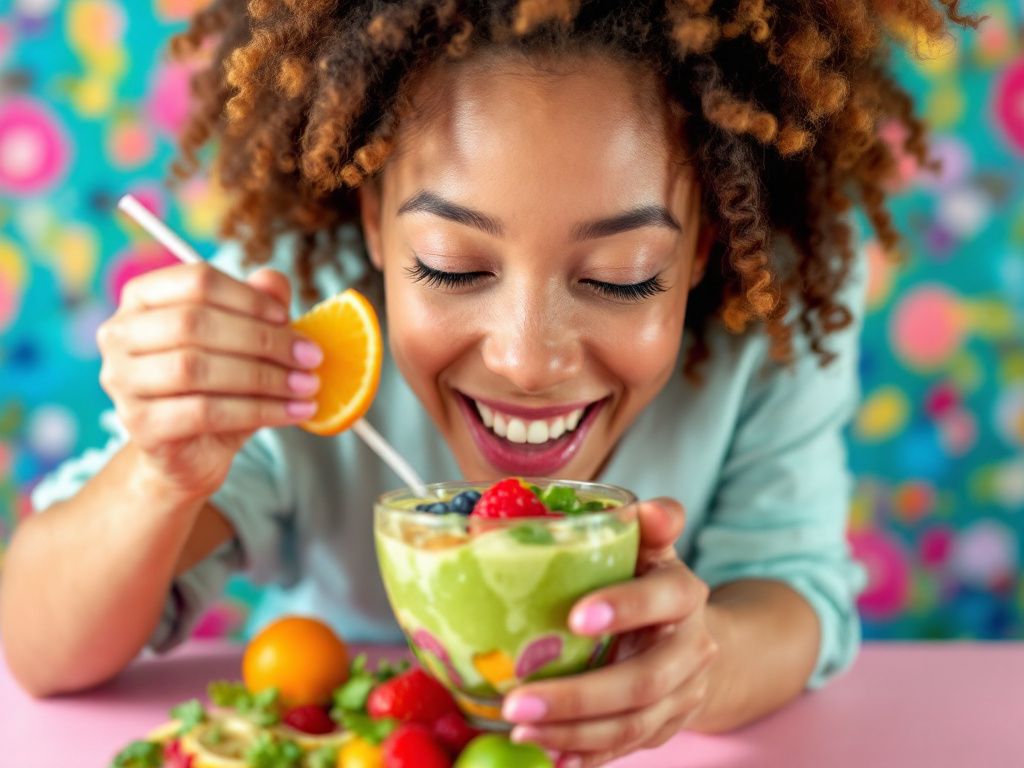Ever noticed how your skin has a little less bounce these days? It doesn’t have to be that way! Let’s dive into something I think you’ll love to discover—how vitamin C foods can give your skin the glow-up it deserves.
Table of Contents
ToggleWhy Vitamin C Matters for Skin
We all know about vitamin C, right? Good old ascorbic acid, often relegated to rainy-day orange juice drinking, is one super powerful antioxidant that your skin is probably craving. It helps with collagen production—that’s the stuff that keeps your skin plump and prevents sagging. Think of collagen like your skin’s personal trampoline. The more functional the trampoline, the more spring you get. This vitamin’s impact doesn’t stop there. It also protects your skin from damage caused by UV rays and pollutants. Ain’t that just brilliant?
Collagen Production for the Win!
When I say vitamin C impacts collagen production, I mean it! Without enough vitamin C, your body struggles to produce collagen. This is why nutrient focus is so crucial. You’ll want to be sure you’re getting your adequate nutrient intake to support healthy skin.
Antioxidant Army!
In the battle against free radicals—which are like those pesky flies buzzing around ruining your summer barbecue—vitamin C is a front-line defense. Free radicals can accelerate aging and damage the skin, but the antioxidant properties of vitamin C scavenge those free radicals like nobody’s business.
Let’s Talk Vitamin C-Rich Foods
Now here’s where it gets tasty. Who doesn’t love eating foods that make us feel as good as they taste? Let’s spice up the conversation with some delectable options you can invite onto your plate to assist your skin health journey.

The Usual Suspects—and Some Surprises
1. Oranges and Other Citruses
They’re classic for a reason. Orange segments make for excellent skin helpers. But don’t just stop at oranges—grapefruits, lemons, and limes are on deck to give you the vitamin C you need. Consider adding a squeeze of lemon to your water or salad for an extra zest and nutrient punch.
2. Berries, the Little Skin Gems
Strawberries, blueberries, and raspberries all have high vitamin C content. Talk about small but mighty! Think of them as nature’s sparkles for your skin. Toss them into your morning yogurt, and boom, your breakfast just got a skin-supporting upgrade.
3. Bell Peppers, the Sweet Treat
Did you know that, per serving, bell peppers contain more vitamin C than an orange? Red bell peppers are particularly high in vitamin C. Try them raw in salads or roast them to bring out their natural sweetness. They fit seamlessly into almost any dish.
4. Kale and Other Greens
Dark leafy greens are like the unsung hero of the vitamin C world. Kale isn’t just a trendy superfood; it’s loaded with skin-nourishing goodness. Saute them or mix them into a smoothie to really max out your nutrient intake.
5. Broccoli

Not everyone’s the biggest fan, but trust me on this one. Broccoli is rich in fiber, vitamins, and minerals. Just half a cup of these green wonders offers plenty of vitamin C. Steam it for a nutrient-packed side or snack!
Quick and Simple Recipe Ideas
You’re busy, I get it. So, let’s make getting your vitamin C impact fix as easy as your ABCs. Here are a few snappy ideas.
Citrus & Greens Smoothie
Take some kale, spin it with a zest of lime, bash in some strawberries, and there you go.
Berry & Yogurt Parfait
Layer up your choice of yogurt with a merry mix of fresh or frozen berries, and maybe a sprinkle of granola if you’re feeling fancy. Perfect quick breakfast or midday snack.
Roasted Bell Pepper & Broccoli Medley
Toss your diced bell peppers and broccoli in a bit of olive oil (a spoonful does it), sprinkle some black pepper and salt, and roast. Easy on the eyes and palate.
Boosting Your Skin Health with Vitamin C

You can munch all the right foods, but how do you help your skin show the effects? Feel free to circle around these steps now and then, making them regular parts of your skin-health routine.
Consistency is Key
You wouldn’t go to the gym once and expect lasting results, right? Same deal with diet. Regular intake of these vitamin C-loaded foods keeps your skin happily replenished and the vitamin C impact apparent over time.
Pair with Other Nutrients
You’ll want to buddy up vitamin C with other antioxidants like vitamin E, which works beautifully in tandem. Maybe throw in some nuts and seeds, which are great sources.
Watch Out for the Skincare Heroes
You’ve heard of skincare products packed with vitamin C serums, right? These can work wonders alongside your diet. A topical approach can help deliver the nutrient directly to where it’s needed most on your skin.
Conclusion
So there you have it, friends—a guide to discovering how vitamin C foods can make your skin radiate like a summer sun. It’s amazing how a simple nutrient has such a profound impact on your body’s largest organ, your skin. Remember, a good nutrient intake is a key to glowy, happy skin.
The beautiful collaboration between what you eat and how your skin feels is genuinely one-of-a-kind. You don’t have to do a complete diet overhaul, just a nudge here, a tweak there. So go on, incorporate these foods, and enjoy the inner and outer brilliance they bring to you! Have fun, stay juicy, and keep glowing!
Frequently Asked Questions
What are the primary health benefits of vitamin C?
Vitamin C offers several significant health benefits, including boosting the immune system, improving heart health, and enhancing iron absorption. It acts as an antioxidant, protecting cells from damage caused by free radicals, which can help reduce the risk of chronic diseases such as heart disease, arthritis, and certain cancers. Vitamin C also supports the production of collagen, aids in wound healing, and may help lower blood pressure and reduce the risk of gout[2][3][5>.
How does vitamin C impact immune function?
Vitamin C plays a crucial role in immune function by helping the body produce specialized immune cells like lymphocytes and phagocytes. It improves the function of these cells and protects them from damage by free radicals. This can help reduce the severity and duration of infections such as the common cold, pneumonia, and sepsis. Additionally, vitamin C is essential for the skin’s defense system, acting as an antioxidant to strengthen skin barriers[1][3][4>.
Can vitamin C help prevent or manage chronic diseases like heart disease and cancer?
Vitamin C may help reduce the risk of chronic diseases such as heart disease and certain cancers. It can lower blood pressure, improve the health of blood vessels, and reduce the formation of carcinogens. Studies have shown that high intake of vitamin C is associated with a lower risk of heart disease, stroke, and various types of cancer, although the evidence is not always consistent and more research is needed[3][4][5>.
How does vitamin C affect skin health and wound healing?
Vitamin C is beneficial for skin health and wound healing due to its antioxidant properties and its role in collagen production. It helps promote wound healing, reduce skin inflammation in conditions like psoriasis and atopic dermatitis, and protect the skin against sun damage. Vitamin C also improves the appearance of skin aging by reducing wrinkles and dryness[1][2][5>.
References







